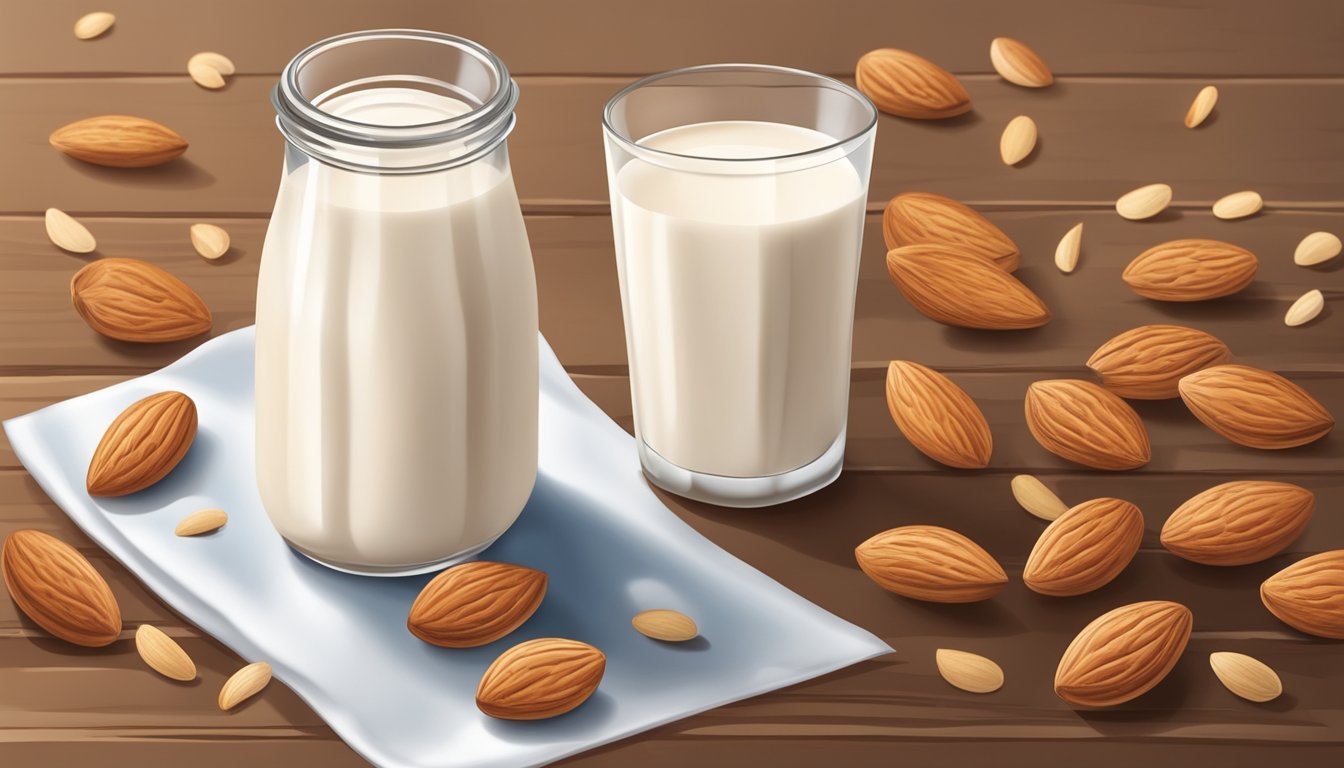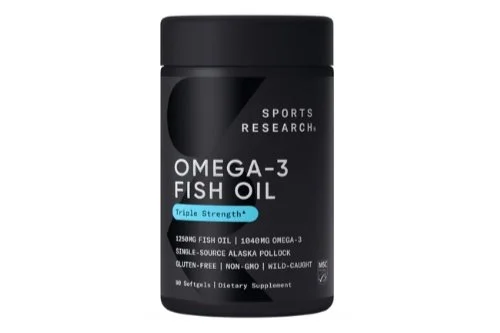Can You Drink Almond Milk on a Carnivore Diet?
Unveiling Dietary Compatibility
The carnivore diet is an eating regimen that prioritizes animal products while excluding plant-based foods. It centers around the consumption of meats, organ meats, fish, eggs, and certain dairy products like milk and cheese. A key aspect of this diet is the exclusion of plant-derived foods, which places almond milk, a popular dairy substitute, outside the diet's parameters.
Almond milk is a plant-based dairy alternative made from almonds and water, often enriched with vitamins and minerals. While it's a favored option for those adhering to vegan, lactose-free, or dairy-avoiding diets, almond milk does not align with the carnivore diet's foundational principle of consuming exclusively animal-sourced nutrients.
Traditional dairy milk, on the other hand, fits within the carnivore diet as it is an animal product rich in protein, fat, and carbohydrates in the form of lactose. Those following a carnivore diet may include dairy milk for its nutritional profile, provided they do not have a lactose intolerance or other reasons to avoid dairy. Consequently, individuals adhering to a strict carnivore diet would avoid almond milk due to its plant-based origins.
Understanding the Carnivore Diet
The Carnivore Diet focuses on consuming exclusively animal products and is often pursued for its potential health benefits, despite certain risks and controversies.
Core Principles and Foods
The Carnivore Diet strictly includes foods obtained from animal sources. Primary components of this diet include:
Meat: Beef, pork, lamb, and other red meats form the foundation.
Poultry: Chicken, turkey, and duck are common selections.
Seafood: Fish and shellfish are allowed.
Animal fats: Preference is given to fats that come directly from animal products, like lard or tallow.
Eggs: A source of protein and other nutrients.
Dairy: Limited to high-fat products such as butter and certain cheeses.
Proponents suggest that the diet provides all necessary vitamins, minerals, and other nutrients, while promoting a state of ketosis due to the restriction of carbohydrates.
Take advantage of the wide variety of online options when shopping for lard or tallow!
Health Benefits and Nutritional Claims
Many adherents claim various health benefits from the Carnivore Diet, including:
Weight loss: Often a result of ketosis, where the body burns fat for energy in the absence of carbohydrates.
Simplicity: A straightforward dietary approach focusing on animal products.
High protein and fat intake: Can lead to increased satiety and stable blood sugar levels.
Nutritionally, it's asserted that the diet provides ample amounts of protein and essential fats, as well as vitamins such as B12 and fat-soluble vitamins A, D, and E. The diet also includes important minerals like iron, zinc, and selenium.
Potential Risks and Criticisms
Critics of the Carnivore Diet point out potential risks including:
Nutritional deficiencies: Potential lack of certain nutrients found in plants, like fiber and certain vitamins.
Cholesterol and heart health: High intake of saturated fats may impact cardiovascular health in susceptible individuals.
Long-term sustainability: Concerns about the practicality and balance of a diet limited to animal products.
This diet might conflict with conventional dietary guidelines, which usually promote a diverse intake of both plant and animal foods. An individual should consider consulting healthcare professionals before starting any restrictive diet.
Almond Milk Overview
Almond milk is a plant-based beverage derived from almonds and is often considered for its nutrient profile, which includes vitamins and minerals, and its use as an alternative to dairy milk due to its lactose-free nature.
Composition and Nutrient Content
Almond milk primarily contains ground almonds and water. It is generally low in calories and fat content but is fortified with nutrients like vitamins and minerals to mimic the nutrient content found in dairy milk. A typical serving contains vitamin E and calcium, though it naturally lacks high levels of protein that dairy milk provides.
Nutrient Profile:
Vitamins: High in vitamin E
Calcium: Often fortified to match dairy milk
Proteins: Lower in protein compared to dairy milk
Fat content: Low, primarily unsaturated fats
Popular Almond Milk Varieties
The market offers several varieties of almond milk, including unsweetened, sweetened, vanilla-flavored, and chocolate-flavored options. Some may contain additives to improve texture and taste, such as thickeners, emulsifiers, and flavorings. Unsweetened almond milk is the most calorie-conscious choice, as it lacks added sugars.
Comparing Almond and Dairy Milk
Almond milk is a favorable choice for those looking to avoid lactose or reduce calorie and fat intake. However, dairy milk excels in protein content and natural nutrient availability. Both drinks can have added vitamins and minerals to balance their nutrient profiles.
Calories: Almond milk is typically lower in calories than dairy milk.
Lactose: Almond milk is lactose-free; dairy milk contains lactose.
Proteins: Dairy milk has more proteins than almond milk.
Fat Content: Almond milk typically has a lower fat content, while dairy milk's fat can vary from non-fat to whole options.
Additives: Almond milk often contains more additives compared to dairy milk.
Consumers may choose between these two based on dietary restrictions, taste preference, and nutritional needs.
Incorporating Beverages in a Carnivore Diet
The Carnivore Diet emphasizes animal-based products, hence beverage options are tailored to suit this regime. This section discusses suitable drink choices, the importance of hydration, and non-dairy milk alternatives compatible with Carnivore dietary principles.
Carnivore-Friendly Drinks
Individuals following the Carnivore Diet should prioritize drinks that align with the diet's animal-focused ethos. The primary beverage is water, which is essential for health and hydration. Beyond water, other acceptable options include:
Bone Broth: Rich in nutrients, this is both hydrating and provides a source of protein and minerals.
Raw Milk: While it's animal-derived, intake should be moderated due to its carbohydrate content.
Heavy Cream: Can be added in small quantities to coffee or tea for a burst of fat and flavor.
Non-animal sourced drinks such as coffee and tea (including herbal tea) are typically considered acceptable by many in the Carnivore community, despite being plant-derived, due to their minimal impact on the overall dietary pattern and potential health benefits.
Role of Hydration and Water Intake
Maintaining hydration is crucial on the Carnivore Diet. While water demands can be met through the diet, it's vital to ensure adequate fluid intake:
Spring Water and Mineral Water: Offer different mineral profiles that can complement nutrition.
Sparkling Water: Provides a bubbly alternative to flat water, without adding non-carnivore substances.
Alternative Milk Options
Although the Carnivore Diet primarily includes animal-based foods, there is a discussion around the inclusion of specific alternative milks:
Almond Milk and Coconut Milk: These are typically excluded from the Carnivore Diet as they are plant-based and not in line with the diet's strict adherence to animal products.
Pasteurized Milk: Can be consumed; however, it is less preferred compared to raw milk due to potential alterations caused by the pasteurization process.
It's essential to carefully assess non-animal based beverages such as almond milk and coconut milk before incorporating them into a Carnivore Diet, understanding that they deviate from the central principles of the dietary practice.
Nutritional Considerations and Modifications
When incorporating almond milk or any other beverage into the carnivore diet, one must carefully consider how it affects macronutrient balance, vitamin and mineral intake, and the impact on specific health conditions. These factors are crucial for maintaining the diet's integrity and ensuring nutritional adequacy.
Balancing Macronutrients
The carnivore diet primarily consists of fats and protein while minimizing carbohydrate intake to maintain a ketogenic state. Almond milk, typically lower in protein and fat compared to animal milk, may not align with the strict macronutrient ratio that the carnivore diet entails. When considering almond milk, individuals should note its macronutrient content:
Fats: Usually contains added oils to improve consistency.
Protein: Generally lower in protein content compared to animal-sourced milk.
Calories: Often lower in calories, which might demand adjusting portion sizes of other foods to meet energy needs.
Addressing Vitamin and Mineral Needs
The right balance of vitamins and minerals is paramount for optimal health. The carnivore diet focuses on animal products to fulfill these needs, and the inclusion of non-animal products may require attention to the following:
Vitamins: Certain types of almond milk might be fortified with vitamins such as Vitamin D or B12.
Minerals: Almond milk can provide minerals such as calcium, magnesium, phosphorus, and potassium, but the bioavailability can differ from animal sources.
Omega-3 Fatty Acids: It's typically not a significant source of omega-3s, a shortfall that must be addressed with other dietary sources or supplements.
Enjoy the convenience of doorstep delivery when you buy omega-3 online!
Dietary Adjustments for Health Conditions
For individuals with health conditions such as lactose intolerance or allergies to dairy, almond milk may serve as a suitable substitute within a carnivore dietary pattern after considering its impact on the body's digestion and nutrient absorption:
Lactose Intolerance: Almond milk is naturally free from lactose, making it a potential option for those intolerant to lactose found in regular milk.
Digestion: While easier to digest for some, almond milk lacks the amino acids and nutrient profile provided by animal-based foods.
Iron and Vitamin C: Non-animal milk substitutes typically do not contain iron or vitamin C, nutrients that must be sourced from other dietary components or supplements.
Online shopping for iron and vitamin C is the smart choice for a seamless transaction!
Almond Milk and Carnivore Diet Compatibility
The carnivore diet traditionally excludes plant-based products, while almond milk is derived from nuts. This incongruence raises questions about the inclusion of almond milk within the diet's framework.
Strict Carnivore Diet Perspective
In a strict carnivore diet, only animal products are consumed. Almond milk is not considered appropriate as it is a plant-based food and does not align with the diet's fundamental principles. A strict carnivore diet includes:
Meat: All types, including beef, chicken, and seafood
Organs: Liver, heart, and other organ meats
Dairy Products: Items such as cheese and heavy cream
Other Animal Products: Eggs and certain dairy derivatives
Given these parameters, almond milk does not qualify as a consumable option for those strictly adhering to the diet. It diverges from the underlying approach, which focuses on animal products exclusively.
Almond Milk in a Modified Carnivore Approach
Some individuals may adopt a modified version of the carnivore diet where limited plant-based foods are permitted. In these cases, one might argue for the inclusion of almond milk due to its nutritional profile and status as a dairy alternative. However, it remains a plant-based item and thus typically falls outside the standard carnivore diet recommendations.
Those who include almond milk in their diet might do so for its:
Lower carbohydrate content compared to regular milk
Absence of lactose, making it suitable for those with lactose intolerance
It is important to note that such a modification is not in line with the strict carnivore philosophy and is a personal adaptation rather than a diet guideline.
Related Dietary Lifestyles
Exploring almond milk on the carnivore diet also invites comparisons with other dietary lifestyles. These particular diets vary in their core principles, especially regarding the consumption of animal and plant-based foods.
Ketogenic Diet Comparison
The ketogenic diet closely relates to the carnivore diet in its low-carbohydrate approach, with a focus on high-fat intake. Both diets induce a state of ketosis, where the body utilizes fat as the primary energy source. However, while the carnivore diet restricts one to animal products only, keto permits a broader spectrum of foods, including plant-based fats like avocado and coconut oil. Notably, grass-fed and organic meat options are esteemed in both diets for their nutrient profile.
Carnivore and Paleo Diet Synergies
Both the carnivore and paleo diets draw inspiration from ancestral eating patterns. They value:
Animal Products: Grass-fed meat, seafood, and eggs.
Exclusion of Processed Foods: A shared commitment to whole, unprocessed foods.
However, paleo accommodates a wider range of plant-based foods, advocating for a balance between meat and select organic, non-starchy vegetables and fruits.
Vegan and Vegetarian Considerations
The vegan and vegetarian diets diverge significantly from the carnivore approach, as they exclude all animal products. Vegetarian variations might include dairy or eggs, while veganism is strictly plant-based. These diets prioritize:
Various sources of Plant-Based Proteins: Beans, lentils, and tofu.
A high intake of Organic Fruits and Vegetables:
In terms of beverages, almond milk is a staple in vegan and vegetarian diets due to its plant origin, contrasting with the carnivore diet where it is not permissible.
Addressing Common Concerns and Misconceptions
When considering almond milk in the context of a carnivore diet, it is crucial to address the digestive and nutritional implications, as well as the sustainability and ethical considerations of such an inclusion.
Impact on Digestive Health
Almond milk, being plant-based, is typically excluded from the carnivore diet, which promotes the consumption of animal products only. Enthusiasts of the carnivore diet suggest that plant-based products can cause digestive issues due to their carbohydrate content and potential to cause inflammation. The exclusion of plant-based products is believed to simplify digestion, given that a typical carnivore diet is low in carbohydrates and may reduce inflammation associated with certain plant compounds.
Sustainability and Ethical Considerations
When discussing sustainability, almond milk production is often scrutinized for its water usage. Almonds require significant amounts of water to grow, which raises concerns about resource utilization in regions where water is scarce. On the ethical side, some consumers choose almond milk to avoid the animal welfare concerns associated with dairy milk production. These concerns revolve around the treatment of livestock and the environmental impact of raising animals for food. However, those following a strict carnivore diet prioritize animal-sourced nourishment based on nutritional beliefs, often setting aside the plant-based ethical arguments.
Concluding Thoughts on Almond Milk in a Carnivore Diet
Almond milk is a popular dairy alternative appreciated for its plant-based origin and its distinct nutritional profile. However, in the spectrum of dietary practices, it holds no place in the carnivore diet. By definition, this diet focuses exclusively on animal products—meat, fish, eggs, and certain dairy products that are direct derivatives from animals.
The key rationale rests on the nutrient density that animal products provide, which is a cornerstone of the carnivore diet. Many adherents to this diet also prioritize food sources based on their nutritional values, favoring those that align with their personal health goals. Almond milk's plant-based nature disqualifies it, as it does not fit within the prescribed individual dietary needs of the carnivore regimen.
For a quick overview:
Allowed on Carnivore Diet: Water, animal meats, organs, eggs, dairy from animals.
Not Allowed: Almond milk and other plant-derived substances.
The exclusion also aligns with the diet’s approach to carbohydrates; almond milk contains sugars, while the carnivore diet encourages a low-to-no-carb intake. As each person's health journey is unique, those considering the carnivore diet should consult healthcare professionals to understand how it might fit into their health plan.
In summary, almond milk is not an option for those on the carnivore diet, due to its plant-based composition and the carbohydrate content it carries. Individuals on this diet should focus on animal-sourced foods to maintain strict adherence and potentially achieve their health objectives.










